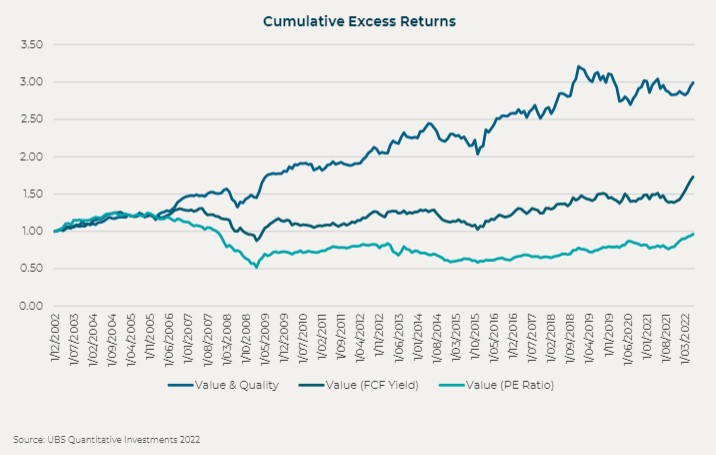Why value is the secret sauce for small cap investing
In an uncertain market, launching a new Australian small-cap fund may sound like an unusual decision. After all, these are commonly perceived as high-growth investments prone to volatility in these conditions.
Tyndall’s Tim Johnston, Deputy Head of Australian Equities, and James Nguyen, Portfolio Manager and Senior Analyst agree with this assessment of small caps. But they also don’t believe volatility needs to be a guarantee. The secret comes down to a value approach – perhaps an unexpected style to apply to a growth arena.
This insight comes with hard-earned experience. Both are seasoned investors across market cycles.
Johnston cut his investment teeth as an analyst on tech stocks at the start of the tech boom, while Nguyen has vivid memories of being unable to exit a position at the start of the GFC. It’s left both with a key focus on solid company fundamentals, looking beyond the noise and appreciation of pricing power.
Ahead of their launch of the Tyndall Australian Small Companies Fund, Johnston and Nguyen shared their insights into the equities market, the strategy behind the new fund and why value is the right approach for small caps in this market environment.
.png)
The key themes markets are dealing with
While inflation and rising interest rates dominate the headlines, it’s hard to overstate their significance to markets. The noise is driving activity and will have an impact on certain companies in the coming year. Johnston points to the impact on housing, consumer spending and a range of debt pressures on companies and individuals.
“We prefer companies with pricing power that can pass on these cost pressures and companies with stronger balance sheets which are less impacted by the rising cost of debt,” says Johnston.
While Tyndall focus on bottom-up stock selection rather than sectors, it’s fair to say some sectors have often thrown up more names with pricing power than others.
“We’ve found quality companies with pricing power in the more defensive industrials such as IPH (ASX: IPH) and within REITs like the LendLease (ASX: LLC) REITs where the rental streams are inflation protected,” says Nguyen.
Both expect market uncertainty to offer opportunities for investment and are ready to move on these as they arise.
It’s easy to forget inflation and interest rates aren’t the only themes going.
“The other key theme underpinning most western economies is the energy transition and the opportunities that is creating for development of new projects, along with the need for critical minerals to facilitate the transition,” says Johnston.
He also points to the development story across Asia.
It’s just one of the reasons they have found some of the companies that meet their criteria have been popping on the resources front, two of which includes Coronado Global Resources (ASX: CRN) and Champion Iron (ASX: CIA). They’ve also incorporated lithium exposures based on the movement towards electrification.
Growth themes with a value lens
Tyndall has a long-held focus on value investing, and the decision to launch the new fund has been a long time coming - several years in fact.
“In the lead-up to COVID, the environment wasn’t right for a value-oriented fund. Then during covid, we were battening down the hatches to deal with the enormous uncertainty at that point of time. Coming out of COVID, we reignited the process. We’ve got the capability and capacity internally with a proven process suited to small caps,” says Johnston.
What does value look like in this case?
Tyndall define it as the company’s worth based on earnings, cashflow generation, growth potential and quality which includes consideration of risk and reinvestment needs. Then it looks for stocks trading at a discount to that assessed value.
It’s not necessarily the standard approach to investing in what is often a high growth area like small caps, but both Nguyen and Johnston believe it offers better outcomes.
“Our back testing of factor returns in a small cap market show that value, particularly when you focus on free cashflow generation as we do, is a source of outperformance and when it’s coupled with quality that supercharges the returns. That combination of value and quality is very powerful,” says Johnston.
The below data from UBS illustrates outperformance different strategies against the Small Ordinaries benchmark over the last 20 years.

The quality overlay is a strategic addition that differs from Tyndall’s large cap strategies.
“A quality overlay recognises that small cap stocks are inherently riskier than large cap stocks and that’s simply a function of the fact that they’re more immature in their development and thus have a broader range of potential consequences. They also have less access to both debt and capital so quality assists in protection from increased risks,” Johnston says.
The notion of increased risk and the wide range of ex-100 ASX stocks that Tyndall identify as its universe also led it to increase the size of its portfolio. The small-cap portfolio can hold 25-70 stocks but Johnston says its likely to sit around 40-50 stocks. This is to offer sufficient diversification and a balance between individual names and factor risks. Weightings are set according to return potential, conviction in the investment thesis, stock liquidity and impact of the broader portfolio. Currently, the largest stock weighting is 4.8%.
Two high conviction picks in the small cap space
The team have been running the portfolio on paper for over a year in the lead-up. It’s given them ample time to take a view on where the opportunities lie and those stocks they hold the highest conviction on.
Nguyen nominates Ardent Leisure (ASX: ALG).
“The reason being that a third of the market cap is cash-backed. They’re still earning below potential as international visitation has not recovered but the industry structure has improved materially with a major competitor under new ownership. What this means is that sustainable earnings will be much higher than pre-pandemic,” says Nguyen.
Johnston selects AUB Group (ASX: AUB).
“The company has seen the benefits of an improvement program that was initiated a few years ago with the current management team. That’s really starting to gain momentum. Those internal improvements coupled with ongoing increases in insurance prices mean that AUB is likely to continue to outperform market expectations. On top of that, it recently made quite a large acquisition in the UK, opening a new growth horizon which the market is not currently attributing value to,” says Johnston.
Knowing when to sell
There are a few triggers Tyndall uses to know when to sell down or out of a position.
- The investment thesis has been realised and valuation has played out.
- Better opportunities elsewhere.
- Investment thesis no longer holds.
One example of a stock where the investment thesis didn’t hold was Baby Bunting (ASX: BBN). The team had the initial view that the category would remain resilient due to ongoing population growth and natural demand. The high inflation and rising interest rates have resulted in customers trading down, leading to gross margin compression which ultimately lead to earnings disappointment.
“We had underestimated that the key customer base are generally first home buyers and more sensitive to rising interest rates,” said Nguyen.
Tips for the year ahead
Both Johnston and Nguyen are firm believers that volatility can breed opportunity… if you’ve done your homework.
“The volatility is going to create opportunities for investors to acquire quality stocks at discounted prices. We would encourage investors to do the work now to identify the stocks they’d like from a quality perspective and then take advantage of those opportunities when they arise,” Johnston says.
Identifying long-term winners
The Tyndall Australian Small Companies Fund invests in a diversified portfolio of Australian small cap companies that we believe are undervalued and will provide consistent risk-adjusted returns with strong capital growth. Find out more here.

2 topics
7 stocks mentioned
1 fund mentioned
1 contributor mentioned


